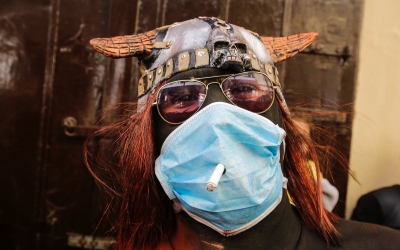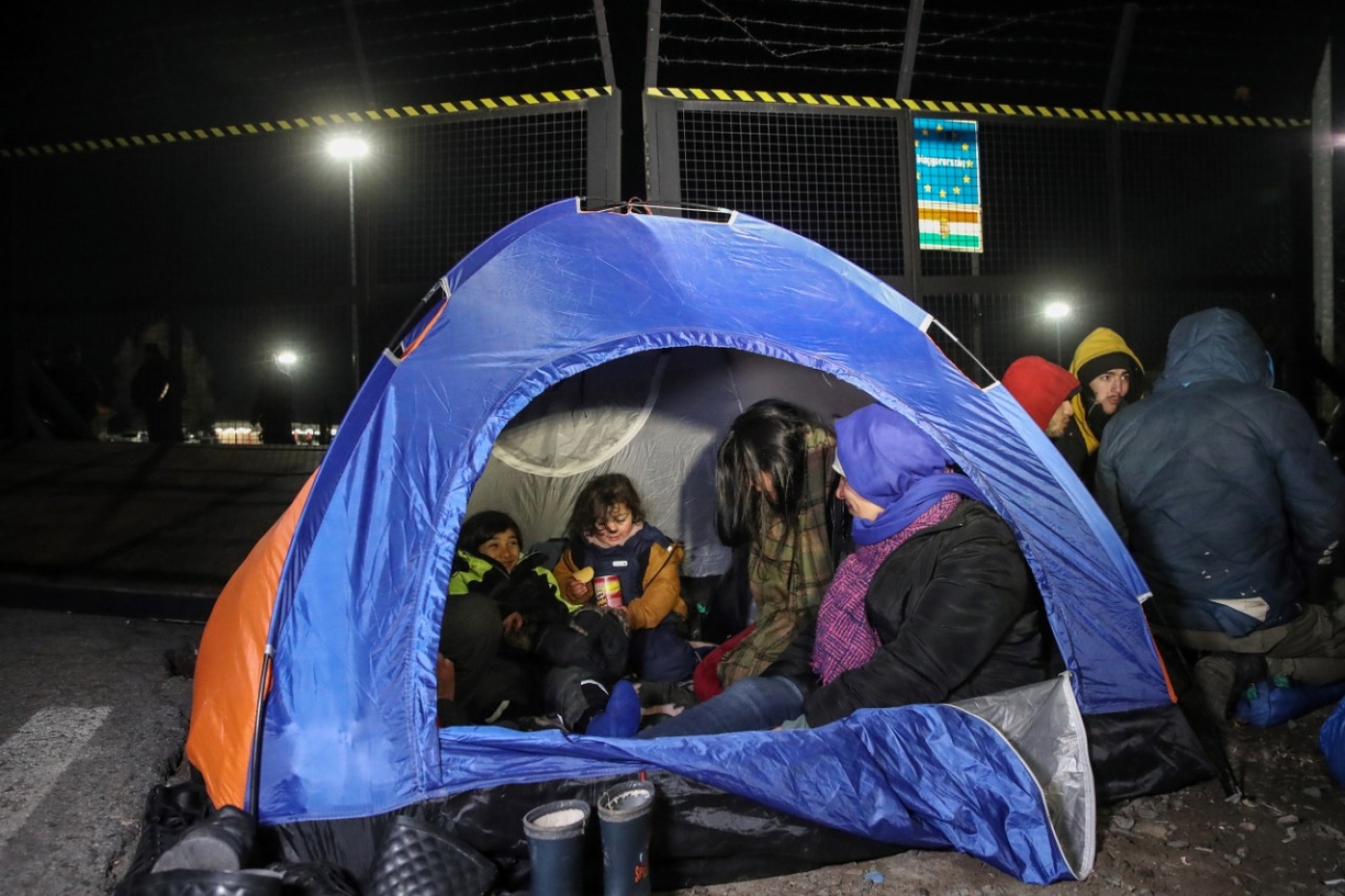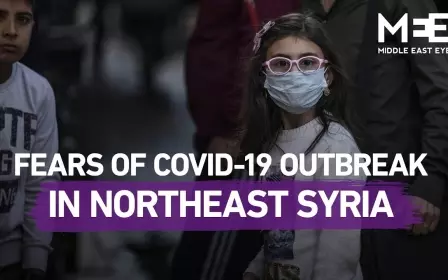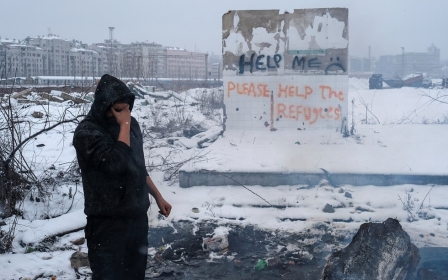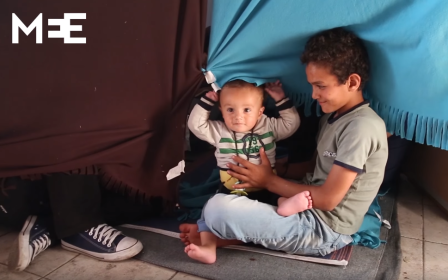Coronavirus: Middle East refugees in Serbia volunteer to combat pandemic
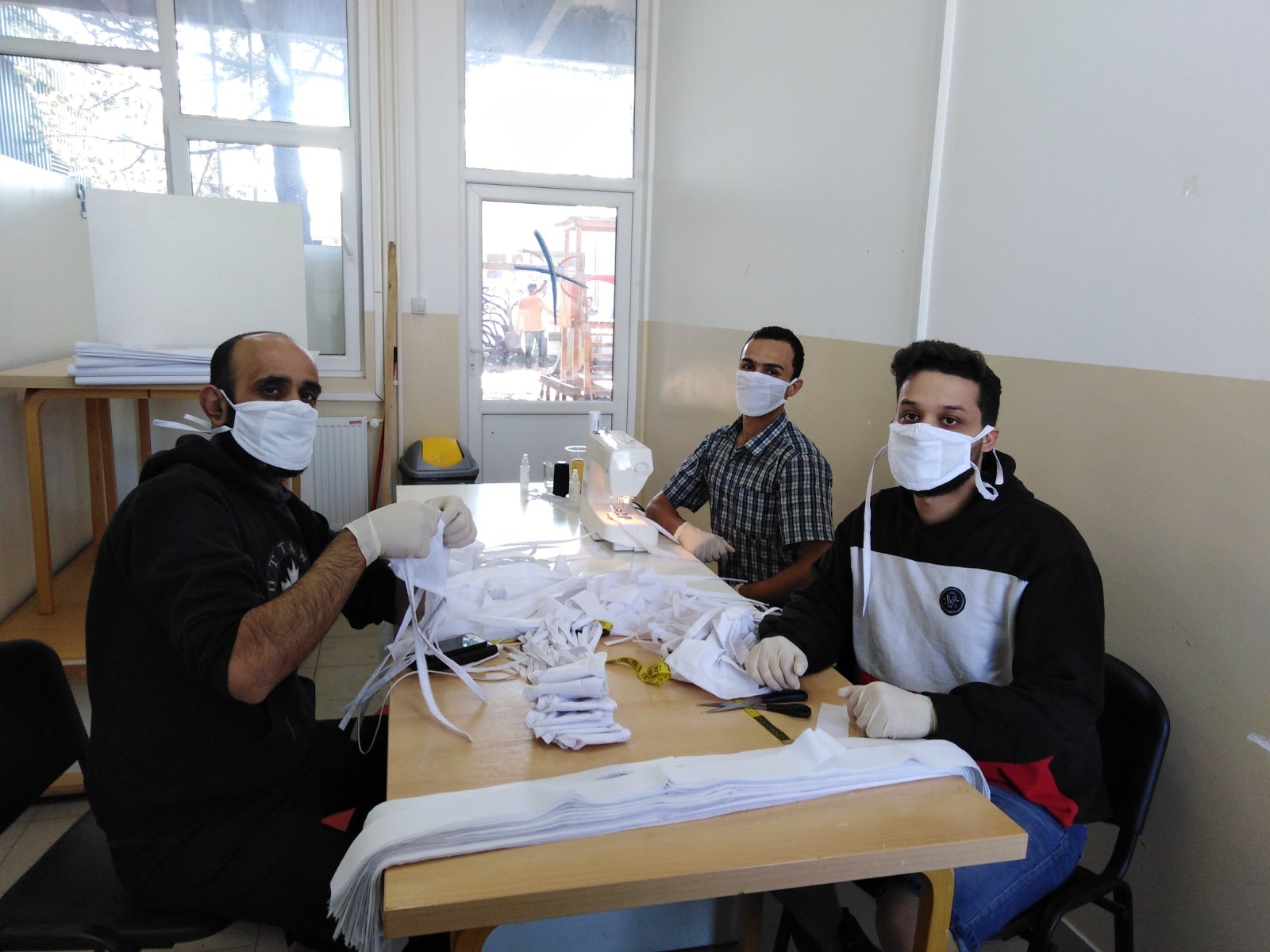
Soheil Habibi used to work as a tailor in Iran until he fled to Europe. Now, with coronavirus sweeping the world, he is putting his skills to good use – sewing protective masks at the Bujanovac refugee camp, on the southern border of Serbia.
"I asked myself: how can I help?" he said. "Since I was a tailor in Tehran, I started doing what I know: sewing medical masks."
Initially he began making masks by hand, then the Serbian Commissariat for Refugees acquired him a sewing machine.
Today, with the help of other refugees, Habibi sews around 100 masks in a day and a half, helping to meet shortages.
In Serbian pharmacies, masks typically cost about one euro ($1.08), forcing the poor to go without.
"I first made the masks from plain cotton, and we used them inside the camp," Habibi said. "Then we found out that the virus is stronger and that we needed better material and a different design. Now I use thicker material and the design that maximises protection."
The masks are distributed not only to refugees in the camp for going outside, but also others. Some also reach local residents.
Habibi and other refugees describe their motives as altruistic: it is not their intention to use their volunteering to get a job or extended stay in Serbia. Most want to reach western Europe and rejoin loved ones.
"Don't get me wrong, we are grateful to Serbia for accepting us, but we don't want to stay," he said. "We are just stranded here, and we all want to continue our journey to reunite with our loved ones. But, since we are here, we can help."
Anti-refugee sentiment rises
In recent months, anti-migrant sentiment has risen in Serbia, just as it has in other parts of Europe. The arrival of refugees had also been politicised as an issue in the planned late-April parliamentary elections, which have now been postponed.
In Belgrade and other cities, there have been reports of how refugees were being harassed by "citizen patrols".
Serbia has become a magnet for refugees. In September, former Austrian minister of interior Herbert Kickl stated during a televised programme that Vienna had signed a treaty with Belgrade, in which the latter agreed to accept refugees rejected by Austria, even though Serbia is neither an EU state nor the first country of entry, where refugees usually have to claim asylum.
"During my ministry we made an a agreement with Serbia, that people who got a negative reply of asylum, must leave the country – but if their states do not want to accept them, we are sending them in another country, namely Serbia," Kickl said of his tenure that ended in May 2019.
While Serbian journalists have sought to get some answers from the Serbian government about Kickl's statement, Belgrade has stayed silent on the matter - a silence which further stoked anti-immigrant sentiment.
There are currently more than 7,000 refugees and migrants stuck in Serbia, after Hungary and Croatia closed their borders before the outbreak of coronavirus. Others have come from Bosnia Herzegovina, where they say conditions are more arduous.
One of those helping Habibi make masks is Hussein al-Masri, a professional paramedic from the Daraa region of Syria. It took him 18 months to reach Serbia.
"For four years, I was a member of the White Helmets [rescue group]," he said. "Before that, since the late 1990s, I was a paramedic." Of his latest role, he said: "This is a global crisis and all of us, as humans, need to fight it."
Masri's final goal is to reach the Netherlands, where his family has already settled.
"I travelled from Syria to Turkey, then Greece, then Albania, and via Kosovo I came here. I would volunteer in any of those countries or in any other country at this time of crisis."
He said he has seen no signs of anti-refugee prejudice. "I came to Serbia a month and a half ago. I am not aware of it. We have a duty as humans to react to this crisis. That is what I do for most of the time in my life. We are in this together."
This virus does not differentiate between the local population and refugees
- Bashar Shaqeer, refugee
Other refugees in the camp are forming themselves into groups and offering their services to the Serbian authorities. They have yet to hear back.
Syrian refugee Bashar Shaqeer, a former business administrator from Damascus, has offered the services of an estimated 250 refugees.
His original goal, he said, was to join friends and family in western Europe, but now he wants to repay the country that offered him food and shelter, adding that he and others cannot just sit around and do nothing.
"We need to help, and we have skills that could be of use in this fight," he said. "After all, we are not afraid of labour. About 40 people from my country in this camp have some sort of medical experience. I am sure that it could be put to good use."
Middle East Eye propose une couverture et une analyse indépendantes et incomparables du Moyen-Orient, de l’Afrique du Nord et d’autres régions du monde. Pour en savoir plus sur la reprise de ce contenu et les frais qui s’appliquent, veuillez remplir ce formulaire [en anglais]. Pour en savoir plus sur MEE, cliquez ici [en anglais].


